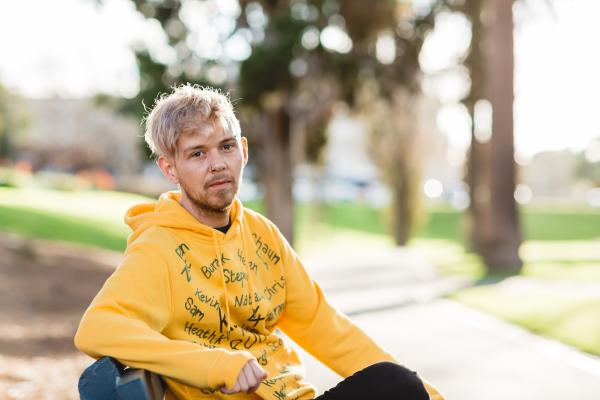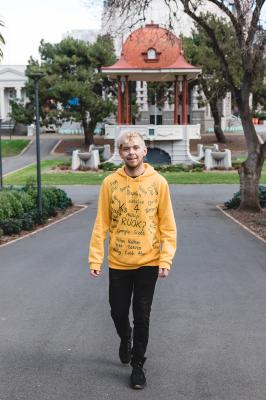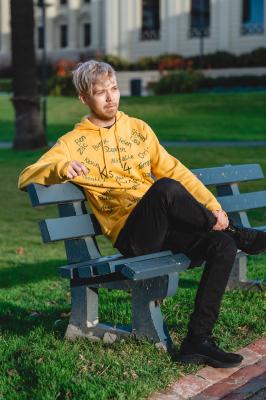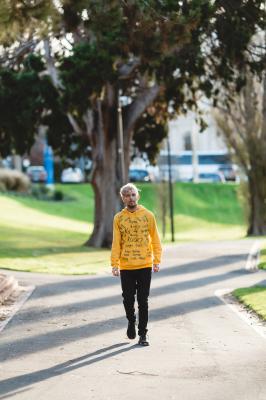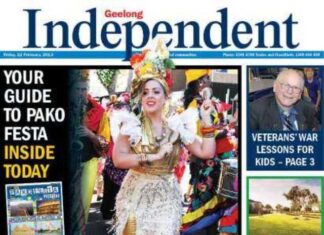At least five Geelong youths have taken their lives in the past six months, showing just how crucial events like Suicide Prevention and Awareness Network’s (SPAN) annual walk are.
But with COVID-19 likely to cause the event’s cancellation this year, SPAN member Ben Le Fevre speaks to Luke Voogt about his mission to keep its spirit alive.
Suicide has touched many – but few as often as Norlane’s Ben Le Fevre.
Ben was 15 when he lost the first of six people close to him to suicide in 2008.
“I remember coming home and being told my cousin Stephen (27) had passed away,” he said.
“I didn’t fully understand then what suicide was and the full effects it would have on me and my family years on.”
In the first two months of 2009, another two friends committed suicide – Natalie, 14, and Zac, 15, both who he knew from football.
“I was devastated, shocked and broken,” he said.
“It brought back those raw feelings from when my cousin committed suicide. This was when I decided to join SPAN Geelong.”
In 2014 his sister phoned to tell him one of her best friends, Kevin, 43, had committed suicide too.
“It was hard seeing her going through the heartbreak caused from losing a loved one to suicide,” he said.
In 2016, family friend Chris, 38, took his life.
“Just when I thought I had lost enough people to suicide, in 2018 I had the toughest one yet, Lisa,” he said.
“Lisa (55) was a massive support for me, always there when I was feeling down, giving me advice on my love life, egging me on with work – you name it. She was like a second mum to me.”
“Since then I have been even more determined to raise awareness of depression and try my best to help prevent suicides.
“Each suicide has had a different effect on all of my family and friends but if anything, for most of us, it has made us stronger.”
Being on the SPAN committee and joining its annual walk for all 10 years since it began, Ben has seen just how many people suicide affects in Geelong.
But he says the walk helps dismantle the stigma around the taboo subject.
“Over the years I’ve come to realise that the SPAN walk has become more of a memorial day and a safe place to talk about those loved ones who we lost to suicide.”
But Ben predicts SPAN will have to cancel September’s walk amid the COVID-19 pandemic.
“I have created some very special friendships from it,” he said.
“I would be heartbroken but understanding if it can’t go ahead.”
Instead, Ben has decided to walk on in memory of those he lost, in the Ks for RUOK?.
“Given that the committee is made up of volunteers we are all still trying our hardest to help raise awareness of suicide,” he said.
Ben is walking 200 kilometres for the month of July, rounded up from 192 – the combined ages of those close to him when they committed suicide.
His partner Elana joins him on weekends to motive him, as he walks about six kilometres a day at locations like Rippleside Park and Eastern Beach.
“I decided to do the kilometres at night as my loved ones were in a dark place at the time, and carry a weighted bag, as they would have been carrying a lot of emotions with them,” he said.
“I do most of the walks alone because that’s how they would have felt – even though they weren’t.”
He has raised $1565 so far and set new target of $2000, after surpassing his initial goal of $1000.
With a recent University of Sydney study predicting a 25 per cent increase in suicides Australia-wide amid the COVID-19 pandemic, Ben hopes his contribution can help.
“Being someone who has had depression and also had the thoughts of killing myself, I know firsthand one of the things you do is isolate yourself,” he said.
“This is not good for your mental health. Sometimes [during COVID-19] we haven’t had a choice but to self-isolate.
“Not knowing what our future holds or how long this is going to last would not be helping anyone’s mental health.”
Six years ago, when Ben was 21, he went to see a doctor for help and a test found he was at high-risk of suicide.
“I was referred to a place that was meant to help. I missed their call because I was at work and never heard from them again,” he said.
“I would like to think, for the younger people in particular, that this is not the case anymore.”
Luckily, Ben was able to overcome his dark time through joining a gym and the support of family and friends –although he acknowledges exercise does not work for everyone.
While organisations like RUOK?, Headspace and Lifeline do a “fantastic job”, friends’ and his own experiences have shown him the difficulties of getting help.
“I know firsthand how much of a merry-go-round it can be,” he said,
“Especially if you are not in a good head space and may be threatening suicide.
“You go to one place and get told they can’t help you, and to go here, so you go there and you’re referred to another.”
He also believes the education system has become “too soft on bullies”.
“I totally understand that they may have stuff going on at home that causes them to become a bully, but that doesn’t make it OK,” he said.
“My nieces and nephews have been bullied at school and, compared to what punishment the bullies got when I went to school, these days they are basically getting away with it.”
The Victorian Coroner is investigating five youth suicides that have occurred in Geelong in six months this year.
Barwon Health has also experienced an increase in referrals for youth services during COVID-19, according to its mental health, drugs and alcohol clinical director Steve Moylan.
“From the outset of the COVID-19 pandemic, we made adjustments to our service provision to ensure we could accommodate any changes in demand,” he said.
The pandemic had impacted on youth mental health through remote schooling, social isolation, changes to family dynamics and the closure of activities including sport and casual jobs, Associate Professor Moylan explained.
But the Geelong community had “responded positively” with service providers, emergency services, government and schools working together to share information and provide collaborative support, he said,
“This also included a series of events conducted to [help] schools and parents support young people in our area.”
Federal government recently announced $531,000 for Geelong Child Youth Suicide Prevention Protocol Group, a collaboration between organisations across Geelong including key partner Barwon Health.
The group is developing the Geelong Suicide Prevention Initiative, which aims to bring together different organisations to apply evidence-based strategies to reduce suicide in Geelong, Professor Moylan explained.
“Now, more than ever, our community must actively work to maintain social connections, especially with those most vulnerable to becoming socially-isolated, especially our older neighbours, and check-in on them too.”
If you or someone you know needs help phone, Lifeline on 131114 or Beyond Blue on 1300 22 4636.
To support Ben’s fundraiser: join.ruok.org.au/fundraisers/benjaminlefevre


